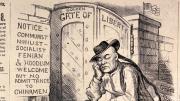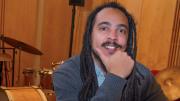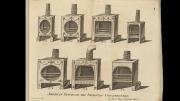Among recent Harvard-related stories:
The Boston Globe ran an article on May 23 on Peter del Tredici, a lecturer on landscape architecture at the Graduate School of Design and senior research scientist at the Arnold Arboretum. His new book, Wild Urban Plants of the Northeast: A Field Guide (Cornell), will be featured in the Off the Shelf column in the July-August issue. Del Tredici argues that urban plants that colonize abandoned city spaces are admirable precisely for the qualities that frustrate traditional landscapers, who like plantings that are perfectly cultivated and ornamental. He considers these more rugged species—such as Japanese knotweed, chicory, and mugwort—an emerging kind of ecosystem, and points out that “you can in many cases get as much functionality out of a cosmopolitan group of plants as you can out of a native group of plants.” They consume carbon dioxide, produce oxygen and shade, and are food and habitat for wildlife. What is more, they do not depend on expensive care, and they prevent erosion and “populate barren, nutrient-depleted soils.” The article was written by Courtney Humphries, one of this magazine’s contributing editors.
Perkins professor of mathematics emeritus John Tate has won the Abel Prize in mathematics, awarded by the Norwegian Academy of Science and Letters for “his vast and lasting impact on the theory of numbers.” King Harald V conferred the award on Tate at a ceremony in Oslo on May 25; the prize comes with 6 million Norwegian kroner, roughly equivalent to $900,000. Tate taught at Harvard for 36 years, and recently retired from the University of Texas at Austin, where he held the Richardson chair in mathematics. In a brief paper on Tate's work, available on the prize website, Arne B. Sletsjøe described the various areas of number theory with which Tate's work has been concerned. Mathematical concepts named after Tate include the Tate module, the Tate curve, Hodge-Tate decompositions, Tate cohomology, and the Lubin-Tate group. The Abel Committee’s citation asserted that “many of the major lines of research in algebraic number theory and arithmetic geometry are only possible because of the incisive contribution and illuminating insight of John Tate.” The prize website contains a video of the announcement, biographies, and more.
On the heels of Commencement week, the satirical newspaper The Onion ran a May 31 article on Harvard's supposed conferral of an honorary degree on the drug Adderall. In an unlikely image, "the synthetic psychostimulant was warmly praised by Harvard president Drew Faust [as a] stirring testament to what the human mind can achieve when chemically altered by a combination of dextroamphetamine and racemic DL-amphetamine salts. 'Harvard is proud to honor the tremendous merits of Adderall, without which many of you would not be sitting here today,' Faust said in her opening address to the nearly 1,900 unblinking and intensely focused students receiving their diplomas." (Read "The Honorands" to learn about the real recipients.)








